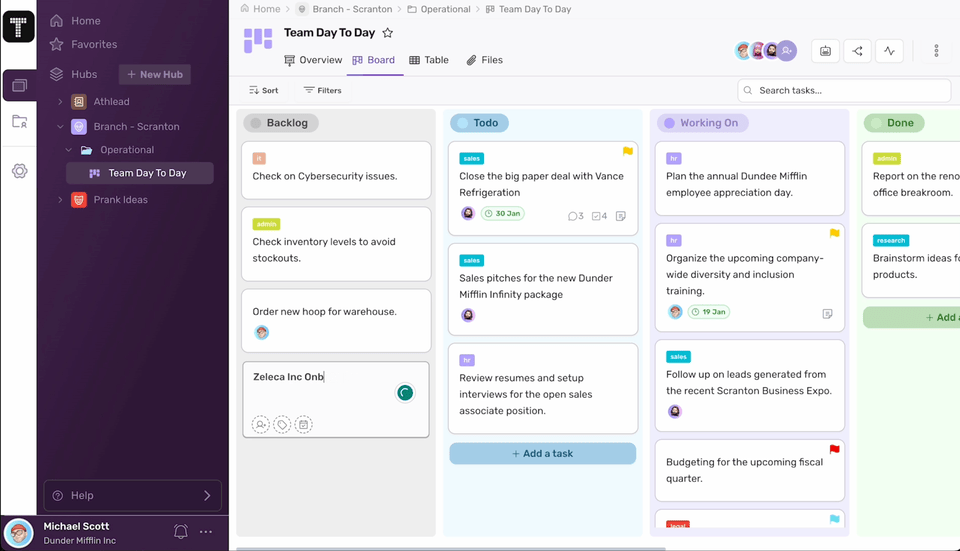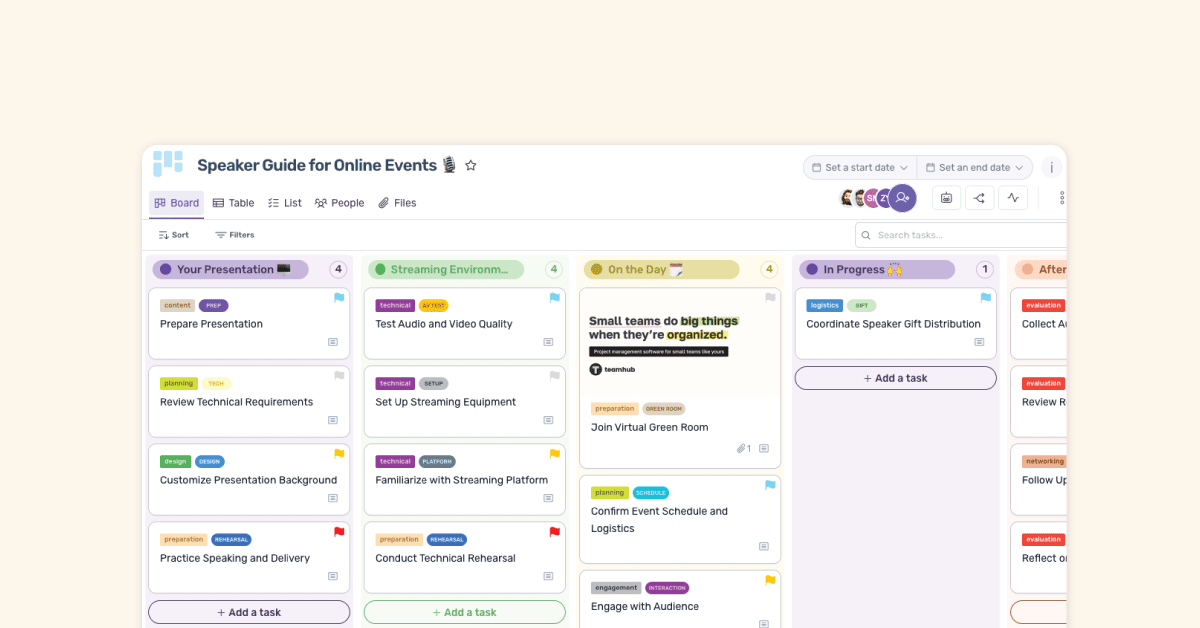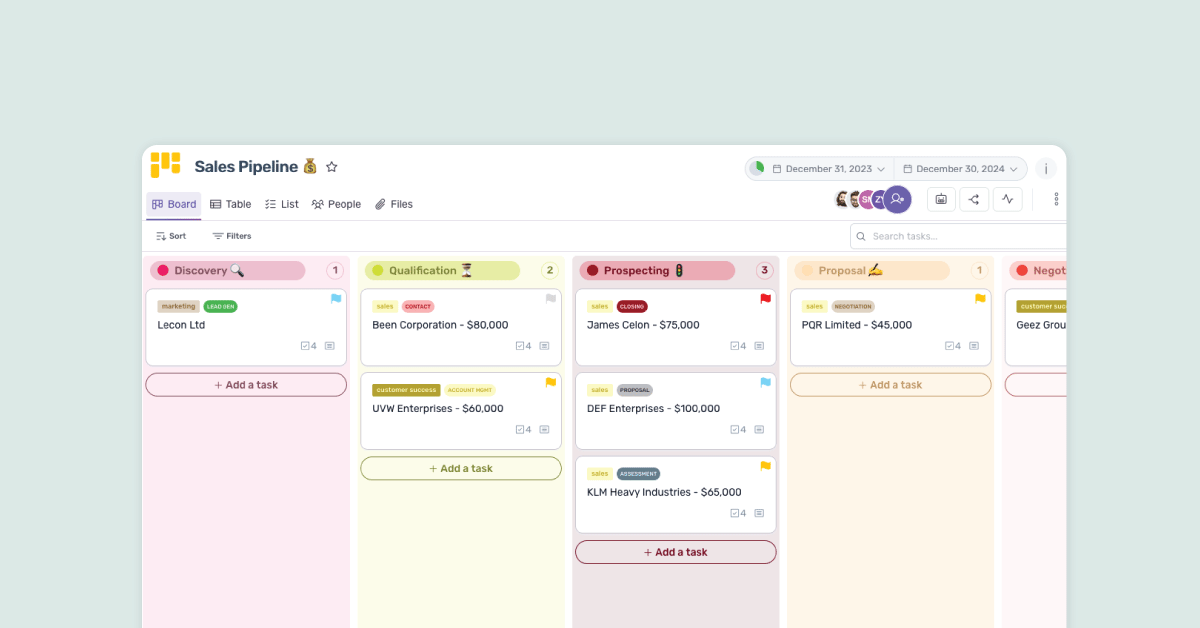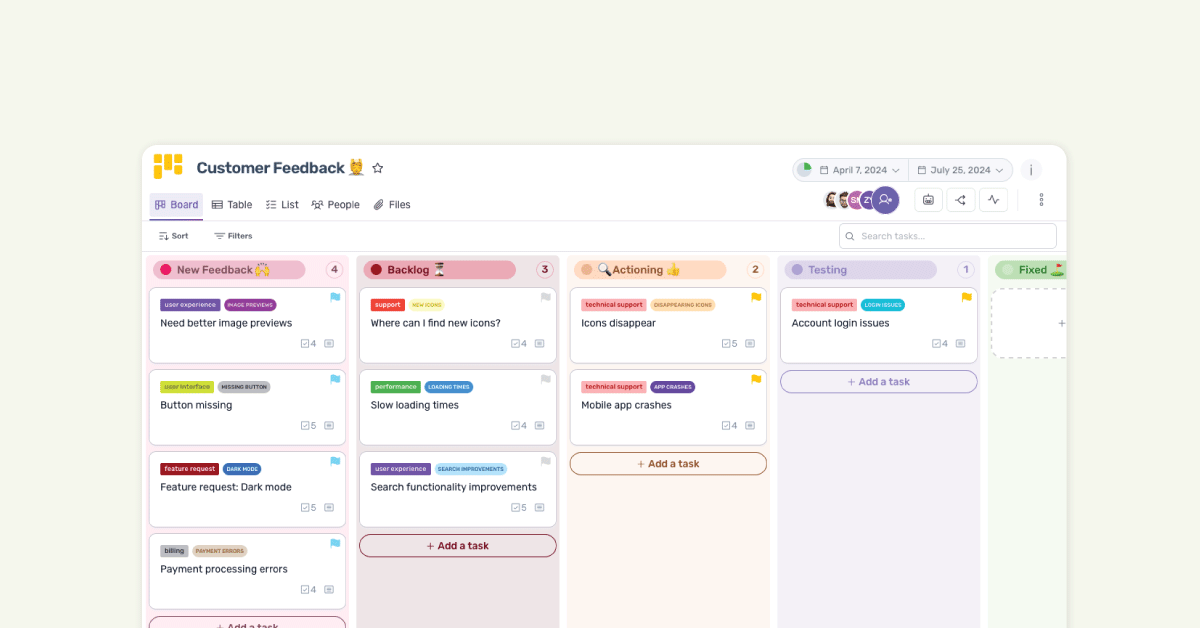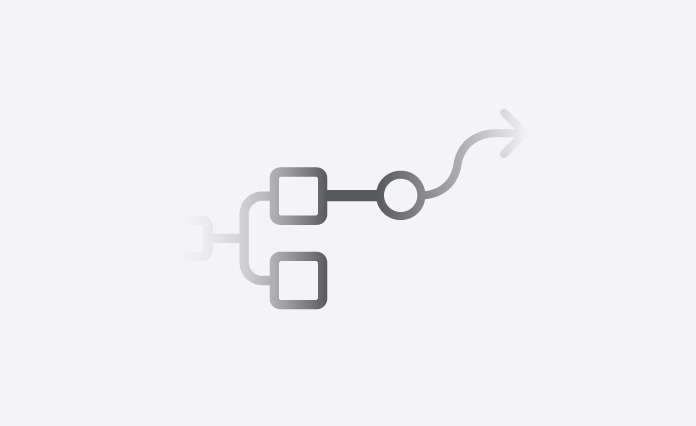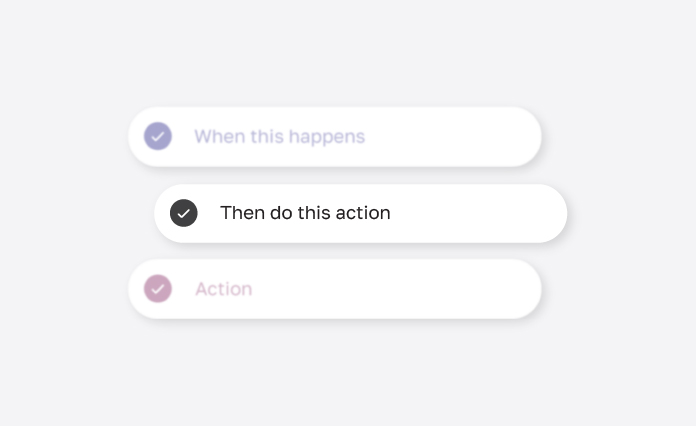Concept development projects play a crucial role in the success of businesses. These projects involve generating new ideas, evaluating their feasibility, and implementing them to create innovative products, services, or processes. To ensure the smooth and effective execution of concept development projects, it is essential to have a comprehensive project template in place. This article explores the importance of concept development in business, the key elements of a concept development project, and how to build and optimize a robust project template.
Understanding Concept Development Projects
The Importance of Concept Development in Business
Concept development is the process of transforming abstract ideas into feasible and actionable projects. It allows businesses to innovate, stay competitive, and address the ever-changing needs and demands of customers. By continuously developing new concepts, companies can expand their product/service offerings, enter new markets, and enhance customer satisfaction.
However, the importance of concept development in business goes beyond just staying ahead of the competition. It also plays a crucial role in fostering creativity and encouraging a culture of innovation within an organization. When businesses invest in concept development, they create an environment that values new ideas and encourages employees to think outside the box.
Key Elements of a Concept Development Project
A concept development project comprises several key elements that ensure its success:
- Market Research: Conducting comprehensive market research helps identify consumer preferences, market trends, and potential opportunities. This information is crucial for developing concepts that align with market needs.
- Idea Generation: This involves brainstorming and gathering innovative ideas from various sources, such as employees, customers, and industry experts. Encouraging collaboration and diversity of thought during this stage can lead to breakthrough concepts.
- Idea Evaluation: Assessing the feasibility, viability, and potential success of each concept is crucial. This evaluation helps select the most promising ideas to pursue further. It involves analyzing market demand, assessing resource requirements, and considering potential risks and challenges.
- Prototype Development: Creating prototypes allows businesses to test and refine their concepts before full-scale implementation. This step helps identify any potential issues and optimize the concept. Prototyping also enables businesses to gather feedback from stakeholders, ensuring that the final product meets their expectations.
- Implementation Plan: Developing a detailed plan outlining the steps, resources, and timeline required for implementing the chosen concept is essential for effective execution. This plan should consider factors such as budgeting, resource allocation, and project management to ensure a smooth and successful implementation.
Furthermore, it is important to note that concept development projects are not isolated endeavors. They are often part of a larger strategic framework that aligns with the overall business goals and objectives. By integrating concept development into the strategic planning process, businesses can ensure that their concepts contribute to the long-term growth and success of the organization.
In conclusion, concept development is a vital process for businesses looking to thrive in today’s dynamic and competitive market. By investing in market research, idea generation, evaluation, prototype development, and implementation planning, companies can bring innovative concepts to life and drive their growth and success.
Building a Robust Concept Development Project Template
Developing a comprehensive concept development project template is a crucial aspect of ensuring the success of any project. By following a structured approach, teams can streamline their efforts and increase the likelihood of achieving their desired outcomes. In addition to the key steps outlined below, incorporating best practices and lessons learned from past projects can further enhance the template’s effectiveness.
Identifying the Project Scope
The first step in building a concept development project template is clearly defining the project scope. This involves not only outlining the goals, objectives, and expected outcomes of the project but also considering potential risks and constraints that may impact its success. By conducting a thorough analysis of the project scope, teams can proactively address challenges and mitigate potential roadblocks, ultimately increasing the project’s chances of success.
Setting Clear Objectives
Having specific and measurable objectives is critical for guiding the concept development project. Clear objectives provide a roadmap for the team, enabling them to prioritize tasks, allocate resources effectively, and track progress towards achieving project milestones. By establishing SMART (Specific, Measurable, Achievable, Relevant, Time-bound) objectives, teams can ensure alignment and focus throughout the project lifecycle.
Defining the Project Timeline
Establishing a realistic timeline is essential for project planning and management. In addition to setting overall project deadlines, breaking down the project into manageable phases or milestones can help teams track progress, identify dependencies, and allocate resources efficiently. By incorporating buffer time for unexpected delays or changes, project managers can mitigate risks and ensure timely project delivery.
Essential Components of a Concept Development Project Template
Embarking on a concept development project involves a series of crucial steps and considerations that can significantly impact its success. From stakeholder analysis to resource allocation, each component plays a vital role in shaping the project’s outcome and ensuring its seamless execution.
Stakeholder Analysis
Conducting a stakeholder analysis goes beyond merely identifying key individuals or groups involved in the project. It delves into understanding their motivations, expectations, and potential influence on the project’s direction. By engaging with stakeholders early on and maintaining open lines of communication, project managers can foster a sense of ownership and commitment among stakeholders, leading to smoother collaboration and decision-making processes.
Risk Assessment
Effective risk assessment is not just about listing potential threats; it involves a comprehensive evaluation of the likelihood and impact of each risk. By proactively identifying and addressing risks, project teams can develop contingency plans and mitigation strategies to safeguard the project’s progress. Moreover, a thorough risk assessment fosters a culture of risk awareness and proactive problem-solving within the project team, enabling them to navigate unforeseen challenges with agility and resilience.
Resource Allocation
Strategic resource allocation is a cornerstone of successful project management, particularly in concept development projects where innovation and creativity are paramount. By aligning resources with project goals and timelines, organizations can optimize their use of budget, personnel, and materials. Effective resource allocation not only ensures that the project stays on track but also empowers team members by providing them with the necessary support and tools to excel in their roles.
Implementing the Concept Development Project Template
Steps for Successful Implementation
Implementing the concept development project template involves several steps:
- Communication and Training: Ensuring that all team members understand the project template and their roles within it is crucial. Conducting training sessions and providing clear communication channels fosters a shared understanding and commitment to the project.
- Collaboration and Coordination: Encouraging collaboration and effective coordination among team members promotes creativity, synergy, and timely decision-making. Regular meetings, progress updates, and feedback sessions facilitate smooth project implementation.
- Monitoring and Evaluation: Regularly monitoring the project’s progress and evaluating its performance against the predefined objectives helps identify any deviations and enables timely corrective actions.
- Documentation: Maintaining thorough documentation throughout the project ensures transparency, accountability, and knowledge transfer. Documenting key decisions, lessons learned, and best practices facilitates future concept development projects.
Monitoring and Evaluating Progress
Continuous monitoring and evaluation of the project’s progress are critical for identifying any issues or bottlenecks. Regular progress reports and feedback from stakeholders help assess the project’s success and make necessary adjustments to ensure its timely completion.
One of the key aspects of successful implementation is effective communication and training. It is not enough to simply introduce the concept development project template to the team; it is essential to ensure that every team member fully understands their roles and responsibilities within the project. This can be achieved through comprehensive training sessions where the project template is explained in detail, and team members have the opportunity to ask questions and seek clarification. Additionally, providing clear communication channels, such as regular team meetings and open lines of communication, fosters a shared understanding and commitment to the project.
Another crucial factor in implementing the concept development project template is promoting collaboration and coordination among team members. By encouraging collaboration, team members can leverage their diverse skills and expertise to generate innovative ideas and solutions. Effective coordination ensures that everyone is working towards the same objectives and that decisions are made in a timely manner. Regular meetings, progress updates, and feedback sessions create a platform for team members to share their progress, exchange ideas, and address any challenges or concerns that may arise during the implementation process.
Optimizing Your Concept Development Project Template
When it comes to optimizing the concept development project template, businesses are constantly seeking ways to enhance their processes and outcomes. By implementing continuous improvement strategies, organizations can elevate their project management practices to new heights. These strategies not only streamline operations but also foster a culture of innovation and excellence within the team.
Continuous Improvement Strategies
To optimize the concept development project template, businesses can implement continuous improvement strategies, such as:
- Post-Project Evaluation: Conducting a thorough evaluation after completing the project helps identify areas for improvement and learn from any challenges or successes encountered.
- Feedback Mechanisms: Establishing feedback mechanisms, such as surveys or feedback sessions, allows team members and stakeholders to share their insights and suggestions for enhancing the project template.
- Benchmarking: Comparing the concept development project against industry best practices and benchmarks provides insights into areas where improvements can be made.
Moreover, by fostering a culture of continuous improvement, organizations can adapt to changing market dynamics and stay ahead of the competition. Embracing feedback and learning from past experiences are key components of this evolutionary process.
Adapting the Template to Different Projects
Every concept development project is unique in its own way. Adapting the project template to suit the specific requirements and characteristics of different projects is crucial for maximizing its effectiveness. Flexibility and customization ensure that the template remains applicable and beneficial to varying project contexts.
Furthermore, tailoring the template to different projects not only enhances its relevance but also allows for greater innovation and creativity. By customizing the approach based on the project’s specific needs, teams can unlock new possibilities and drive success in diverse scenarios.
Conclusion: The Value of a Comprehensive Concept Development Project Template
A comprehensive concept development project template provides a structured framework for successfully executing concept development projects. It ensures that all key elements, such as market research, idea generation, and implementation planning, are addressed systematically and effectively. By building and optimizing a robust project template, businesses can enhance their concept development capabilities, drive innovation, and achieve competitive advantage in the dynamic business landscape.
Ready to elevate your team’s concept development process? Discover how Teamhub can streamline your collaboration and project management efforts. With our intuitive platform, you can connect departments and centralize your projects and documentation in one hub, enhancing productivity and innovation. Join the thousands of companies benefiting from Teamhub’s solutions. Get started for free today and transform the way your small team operates!

